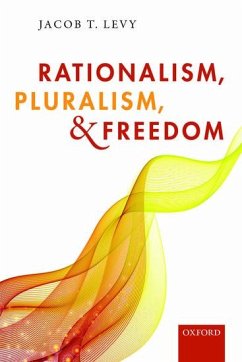
Pluralism, Socialism, and Political Legitimacy
Reflections on Opening Up Communism

PAYBACK Punkte
52 °P sammeln!
The processes of transition from communist rule in Eastern Europe and the dilemmas of reform in the Soviet Union invite reflection on the role of pluralism in rendering a political system legitimate and democratic. In this book, Frederick M. Barnard examines differing conceptions of political pluralism, focusing on the question of how political differentiation can evolve and flourish without leading to crippling political fragmentation. He emphasizes the necessary balance between political differentiation and societal cohesion. The book uses certain proposals put forward by pluralist reformers...
The processes of transition from communist rule in Eastern Europe and the dilemmas of reform in the Soviet Union invite reflection on the role of pluralism in rendering a political system legitimate and democratic. In this book, Frederick M. Barnard examines differing conceptions of political pluralism, focusing on the question of how political differentiation can evolve and flourish without leading to crippling political fragmentation. He emphasizes the necessary balance between political differentiation and societal cohesion. The book uses certain proposals put forward by pluralist reformers during the Prague Spring as a point of departure in examining broader questions about socialism and pluralism. These proposals outlined a unique form of pluralist socialism. In reflecting on them, Professor Barnard takes up a number of issues fundamental not only to socialist theory but to political theory generally, such as the political conversion of doctrinal "isms" and, in this context, the nature and role of political ideology; the relation of the state to society; and the importance of political accountability. He examines the ways in which Czechoslovak pluralist ideas differed from others advanced at the time in Poland and Yugoslavia as well as from those common in Western democracies, and these differences clarify opposing arguments about the meaning and method of democratizing society, such as the question of whether democratization requires the deprofessionalization of politics if not the total withering away of the state. Throughout the book, the author explores the political-philosophical as well as the procedural-democratic problems involved in legitimizing socialism as a pluralistpolitical system, and, in so doing, also throws new light on central concerns in Western political debate. This is a clearly written exposition of a complex set of issues that should be of interest to political philosophers as well as to scholars and students of Eastern European and Soviet political theory.














